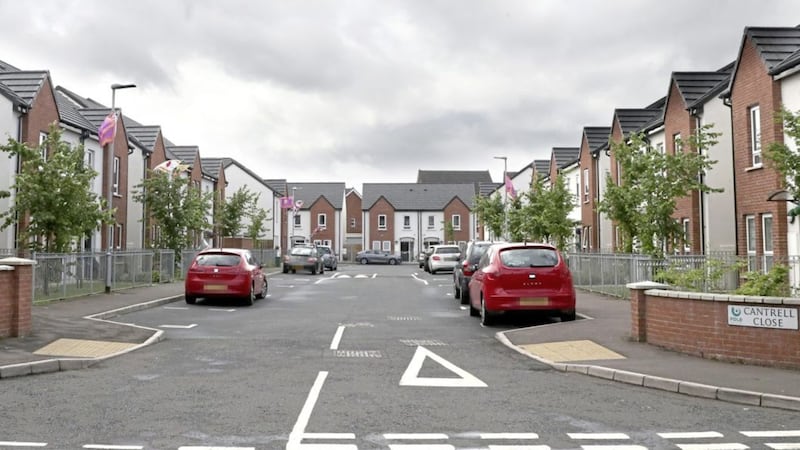The Sinn Féin motion passed by Belfast City Council this week, demanding the removal of unapproved paramilitary flags and banners, has interrupted and to some extent swamped a more interesting debate between the Greens and Alliance.
This has ostensibly been a debate about pragmatism versus idealism, focused on arguments over the past few years in south and east Belfast, the electoral heartland of both parties.
The Greens support flags ‘protocols’, negotiated with flag-flyers, restricting loyalists - for example - to displaying union flags in July and August only. The party acknowledges this is imperfect but describes it as “realistic”.
For Alliance, it is “not good enough”. A protocol is still begging paramilitaries to behave while letting them use flags to intimidate, control and mark territory - epitomised by the flagging of the mixed Cantrell Close housing development.
Alliance wants all flags removed and points out this is also what the vast majority of residents want, despite the portrayal of protocols as a form of community engagement.
One possible synthesis of both positions, evolving around flag and bonfire disputes elsewhere, is ‘managed self-regulation’ - where protocols are agreed but it is accepted the authorities will ultimately step in to enforce them.
This might have been the big idea to emerge from the Fresh Start flags commission, had its report not got stuck in the Stormont works.
Managed self-regulation was apparently delivered last year after Belfast City Council obliged the PSNI and the Department for Infrastructure to enforce bonfire agreements in east Belfast.
It took a military operation but loyalists backed down and the carrot and stick approach so far looks like a success.
Its key lesson is that enforcement anywhere sends a message everywhere, undermining the PSNI’s argument that, when it comes to flags, it cannot police every lamppost. Policing only a few lampposts could be enough.
Unfortunately, the council’s action this week is too rushed to replicate the bonfire success. The motion mentions protocols but by demanding enforcement before putting agreements in place, it is all stick and no carrot.
The argument between the Greens and Alliance has a further dimension, regarding the definition of ‘shared space’.
The Greens say “shared space is not neutral space”, meaning everyone should be able to negotiate the display of their symbols.
Alliance says that in practice putting symbols up brands an area as single-identity.
Northern Ireland as a whole needs to have this argument and it would be intriguing for Alliance and the Greens to lead the way, as their positions defy categorisation on the unionist/nationalist spectrum.
Unionists have accused Alliance of siding with Sinn Féin on the issue. However, Alliance believes bilingual signs destroy shared space and objected to Sinn Féin’s 2015 draft Irish language bill on that basis. Alliance tried to have all flags and banners included in the council motion this week, until Sinn Féin blocked it.
Categorisations that might work better in understanding the Alliance/Green split include age, income and social class.
Alliance is essentially taking the home-owners’ stance that sectarian symbols bring down an area - an objection too profound to dismiss as merely fretting over house prices.
The Greens look more in tune with a younger, renting demographic, bounced around urban areas where they just hope everyone can get along.
By far the most interesting aspect of their argument is that, perhaps for the first time ever in Northern Ireland, we have an agenda-setting flag dispute where parties are scrambling for the centre ground rather than just trying to get their own flag higher up the lamppost.
Sinn Féin may have blundered into this argument but it is aiming for the centre now as well, albeit with two-faced hesitation.
The DUP has refused to condemn any loyalist flags and banners, while the UUP has taken a vow of silence on the subject.
Nothing better illustrates how all unionist parties are choosing to marginalise themselves from the new direction in our politics.









